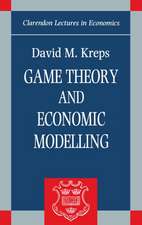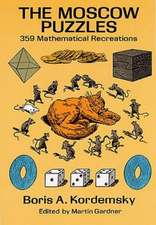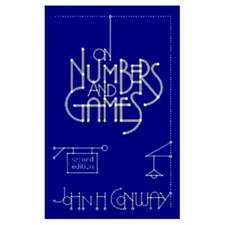Game Theory in the Social Sciences: A Reader-friendly Guide
Autor Luca Lambertinien Limba Engleză Paperback – 30 mar 2011
| Toate formatele și edițiile | Preț | Express |
|---|---|---|
| Paperback (1) | 426.60 lei 6-8 săpt. | |
| Taylor & Francis – 30 mar 2011 | 426.60 lei 6-8 săpt. | |
| Hardback (1) | 932.77 lei 6-8 săpt. | |
| Taylor & Francis – apr 2011 | 932.77 lei 6-8 săpt. |
Preț: 426.60 lei
Preț vechi: 566.94 lei
-25% Nou
Puncte Express: 640
Preț estimativ în valută:
81.63€ • 85.46$ • 67.54£
81.63€ • 85.46$ • 67.54£
Carte tipărită la comandă
Livrare economică 05-19 aprilie
Preluare comenzi: 021 569.72.76
Specificații
ISBN-13: 9780415664837
ISBN-10: 0415664837
Pagini: 208
Ilustrații: 30 b/w images, 67 tables and 30 line drawings
Dimensiuni: 174 x 246 x 13 mm
Greutate: 0.39 kg
Ediția:1
Editura: Taylor & Francis
Colecția Routledge
Locul publicării:Oxford, United Kingdom
ISBN-10: 0415664837
Pagini: 208
Ilustrații: 30 b/w images, 67 tables and 30 line drawings
Dimensiuni: 174 x 246 x 13 mm
Greutate: 0.39 kg
Ediția:1
Editura: Taylor & Francis
Colecția Routledge
Locul publicării:Oxford, United Kingdom
Public țintă
Postgraduate and UndergraduateCuprins
1. The Origins; a bit of History 2. What is a Game? 3. Solving a Game 4. Understanding Economics 5. Repeated Games and Collusive Behaviour 6. Uniderstanding Politics 7. Wargames 8. Trade, Security and Hegemony 9. The Role of Information 10. Cooperation and Bargaining
Notă biografică
Luca Lambertini is Professor of Economics and Vice Dean in the Faculty of Political Science at the University of Bologna, Italy.
Descriere
Individuals, firms, governments and nations behave strategically, for good and bad. Over the last few decades, game theory has been constructed and progressively refined to become the major tool used by social scientists to understand, predict and regulate strategic interaction among agents who often have conflicting interests. In the surprisingly anodyne jargon of the theory, they ‘play games’. This book offers an introduction to the basic tools of game theory and an overview of a number of applications to real-world cases, covering the areas of economics, politics and international relations. Each chapter is accompanied by some suggestions about further reading.













